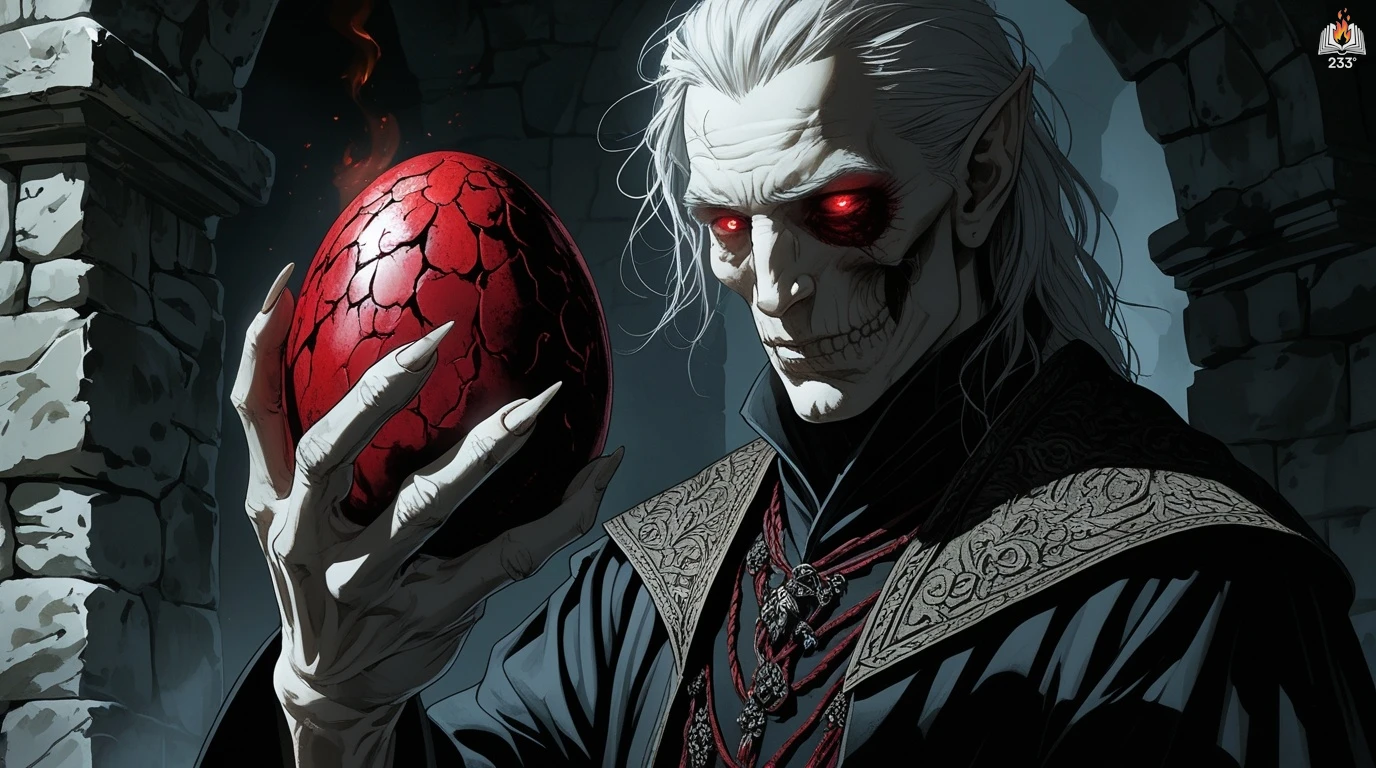“A Final Reckoning” is a novel by G.A. Henty, first published in 1887. Henty, known for his historical adventure stories, sets this novel in Australia during the early days of British colonization. The novel is notable for stepping away from Henty’s usual historical battlefields and instead focusing on a thrilling adventure involving settlers, bushrangers, and Aboriginal Australians. The protagonist, Reuben Whitney, embarks on a journey filled with danger and moral challenges as he faces the wilderness and criminal elements of the Australian outback.
Plot Summary
Reuben Whitney stood before the stern schoolmaster of Tipping village, his defiance clear in his eyes. Despite being clever and bright, Reuben had a knack for getting into trouble—or rather, trouble had a way of finding him. On this day, four windows of the village school were smashed, and Reuben, having been the last to leave, was blamed. Yet, it was not his doing. It was Kate Ellison, the squire’s daughter, who finally cleared his name, revealing that the true culprit was Tom Thorne, a bully and Reuben’s bitter rival. This rivalry set the stage for the larger trials awaiting Reuben.
Reuben’s father had once been a prosperous miller, but after a series of bad investments, he drowned under suspicious circumstances. His mother, Mrs. Whitney, struggled to maintain a small shop, barely scraping by. The villagers looked down on the boy, blaming him for mischief he did not commit, and the schoolmaster’s harsh punishments further isolated him. But Reuben was resilient. With his mother’s support, he faced these injustices head-on, determined to carve a better future for himself.
Reuben’s chance came when the squire, Mr. Ellison, offered him work in his garden. Though the boy welcomed the opportunity to prove himself, fate had other plans. The squire’s fierce watchdog, Wolf, bit Reuben, and shortly after, the dog was found dead—poisoned. Circumstantial evidence pointed to Reuben, especially when a packet of rat poison from his mother’s shop was discovered near the dog’s kennel. The squire, assuming Reuben had killed the dog in revenge, dismissed him, despite the boy’s tearful protests of innocence.
Unable to bear the shame of being wrongfully accused, Reuben and his mother moved to Lewes, a nearby town. Mrs. Whitney opened another small shop, while Reuben found work as an apprentice to a millwright named Mr. Penfold. Though this new life offered hope, Reuben could not shake the injustice of his past. He suspected Tom Thorne might have poisoned the dog to frame him, but with no proof, Reuben was forced to bury his suspicions. Still, Lewes offered him a fresh start. Under Mr. Penfold’s guidance, Reuben flourished, learning the millwright trade and becoming a respected young man.
But back in Tipping, the squire’s troubles were far from over. One night, thieves broke into his home, making off with valuables and leaving chaos in their wake. The villagers were in an uproar, blaming bushrangers and lawlessness. The squire, furious and determined to recover his stolen property, called for a search party. Reuben, hearing of the burglary, volunteered to help. His knowledge of the surrounding countryside, learned from his days roaming the fields and forests near Tipping, made him invaluable to the group.
The search led Reuben and the others deep into the wilderness. They followed faint tracks, through dense bushland, until they stumbled upon the lair of the bushrangers. The outlaws were rough, dangerous men who had been terrorizing settlers for months. With the help of the police, Reuben and the squire’s men confronted the criminals in a tense standoff. Shots rang out, and in the heat of the battle, Reuben showed his courage, helping to subdue the bushrangers and recover the stolen goods. His bravery did not go unnoticed, and word of his actions quickly spread.
The squire, now aware of Reuben’s valor and loyalty, began to regret his harsh treatment of the boy. He invited Reuben back to Tipping, offering him a position of trust and a chance to restore his reputation. Reuben accepted, though not without a sense of wariness. The village that had once turned its back on him now looked at him with respect, and even Tom Thorne, whose grudge had caused so much trouble, was forced to swallow his pride.
Yet Reuben’s adventures were far from over. The Australian wilderness, still untamed and full of danger, presented new challenges. The settlers lived in constant fear of attacks from both bushrangers and hostile Aboriginal tribes. Reuben, now a trusted member of the community, took on greater responsibilities, learning to navigate the harsh terrain and defend the settlers from threats.
One fateful day, Reuben led an expedition into the heart of the bush, seeking to track down a particularly violent band of bushrangers who had been terrorizing the local farms. The journey was perilous, with the men battling extreme heat, hunger, and the ever-present danger of ambush. But Reuben’s keen instincts and unyielding determination guided them through the worst of it. After a grueling trek, they finally located the outlaws’ hideout.
In the fierce battle that followed, Reuben once again proved his worth, risking his life to protect his comrades and ensure the safety of the settlers. His actions earned him the respect and admiration of all, including Mr. Ellison, who had now fully embraced him as a trusted ally and friend. Reuben had come full circle, from a boy wrongfully accused and cast out, to a young man who stood tall in the face of adversity, defending the land and the people he had grown to love.
Through his courage, integrity, and hard work, Reuben Whitney had finally found his place in the world—a place built on honor, loyalty, and the deep bonds forged in the wilds of Australia.
Main Characters
- Reuben Whitney: The protagonist of the story, Reuben is a bright but mischievous young boy from Sussex, England. Despite his intelligence, he is often misunderstood and unfairly blamed for mischief. His journey to Australia represents his quest for a new start and redemption, and he grows through trials of hardship, survival, and moral testing.
- Mrs. Whitney: Reuben’s mother, a hardworking widow who runs a small shop. She provides emotional and practical support to Reuben, raising him with a strong sense of independence and fairness, despite the difficulties they face after the death of Reuben’s father.
- Tom Thorne: A key antagonist early in the novel, Tom harbors a grudge against Reuben. His rivalry and deceit cause significant troubles for Reuben, setting the stage for the larger conflicts of the story.
- Kate Ellison: The daughter of the squire, Kate plays a key role in defending Reuben when he is wrongly accused, displaying a sense of fairness and justice that contrasts with the rest of the village’s view of Reuben.
- The Squire (Mr. Ellison): The wealthy landowner of the village, Mr. Ellison plays a dual role as a protector and harsh disciplinarian. While he harbors respect for Reuben’s father, he is quick to judge Reuben without giving him a chance to defend himself.
Theme
- Redemption and Moral Growth: Reuben’s journey from a misunderstood boy in England to a courageous young man in Australia is one of personal redemption. Throughout the novel, he confronts injustice, learns from his mistakes, and grows into a figure of responsibility and honor.
- The Harshness of Frontier Life: Henty paints a vivid picture of life in early Australia, highlighting the dangers posed by both the landscape and the criminal elements such as bushrangers. The settler’s life is depicted as one of constant struggle against nature and lawlessness.
- Injustice and Prejudice: A recurring theme in the novel is the injustice Reuben faces from those who judge him based on assumptions rather than facts. From his early troubles in England to being wrongly accused of poisoning a dog, Reuben’s struggles highlight the broader issues of social prejudice.
- Adventure and Survival: Much of the novel revolves around thrilling episodes of survival, including dangerous encounters with bushrangers and Aboriginal tribes. These moments showcase the unpredictability of life in the wilderness and the courage required to endure it.
Writing Style and Tone
G.A. Henty’s writing in “A Final Reckoning” is characterized by his signature blend of historical detail and gripping adventure. His tone is one of stoic resilience, embodying the Victorian ideal of the “stiff upper lip” and the moral superiority of British settlers. Henty employs a straightforward narrative style that emphasizes action and moral lessons, making his novels popular among young readers of his time.
The tone of the novel is largely serious, interspersed with moments of light humor and sentimentality, particularly in the early chapters where Reuben’s mischievousness is on display. As the story shifts to Australia, the tone becomes more dramatic and tense, reflecting the life-or-death stakes of survival in the wild. Descriptions of the Australian landscape are vivid but tinged with a sense of danger, reinforcing the unpredictability of frontier life.
We hope this summary has sparked your interest and would appreciate you following Celsius 233 on social media:
There’s a treasure trove of other fascinating book summaries waiting for you. Check out our collection of stories that inspire, thrill, and provoke thought, just like this one by checking out the Book Shelf or the Library
Remember, while our summaries capture the essence, they can never replace the full experience of reading the book. If this summary intrigued you, consider diving into the complete story – buy the book and immerse yourself in the author’s original work.
If you want to request a book summary, click here.
When Saurabh is not working/watching football/reading books/traveling, you can reach him via Twitter/X, LinkedIn, or Threads
Restart reading!








